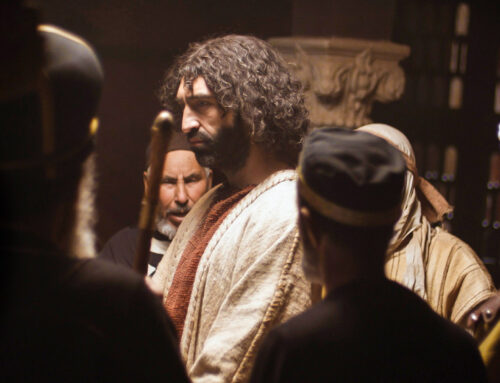 Moment of Discovery
Moment of Discovery
“Look at that big bass drum,” Dad said. We were at Everett Memorial Stadium, watching Cascade and Everett high schools face off for the annual Thanksgiving Day football game. I looked at the marching band and squinted as I searched for the bass drum. “Don’t you see the drum with the big red C on it?” “No, but I see a big pink drum,” I responded.
Needless to say, within a week I was sitting in the eye doctor’s chair, while he tested me to see just how bad my eyes were. He measured my vision, I chose the frames, and a couple of weeks later I returned to get my first pair of glasses.
The technician slid my glasses onto my face, and my mouth dropped open. I could see that he had freckles—a detail that had completely eluded me before I was wearing the glasses. I noticed the small print on posters on the walls and the needles on the pine tree out our kitchen window. I loved the clarity!
My eyes didn’t change that day, but I had new lenses to look through. And those lenses greatly impacted the way I’ve seen the world since then.
I’m wondering how our reading of the Bible might be impacted as we approach it with new lenses.
When we come to the Bible, we are coming to the Word of God, breathed by the Spirit of God, written to point us to the Son of God who came to earth to fulfill the heart of God. So let’s approach the Bible with prayer, asking the Lord to open our eyes and our hearts to what he wants to show us.
Potpourri of Lenses to Experiment with
Here’s a potpourri of ideas that might act for you as lenses through which to read the Bible: Feel free to pick and choose.
- Read the passage (it could be a chapter, a story, a psalm, even an entire book of the Bible) several times, just to become familiar with it. Consider listening to an audible version of your passage.¹
- Jot down thoughts or questions that come to mind as you read through the passage.
- Choose one or more of your questions/thoughts and see what the passage says about it. What other Scriptures speak to the questions/thoughts you are studying?
- One rules of Bible study is that you should interpret the Scripture in light of the Scripture. Bible teacher Kay Arthur says, “[W]hen studying any particular book of the Bible, ultimately that book must be evaluated in the light of the entire Bible.”²
- If you feel like you’re in over your head, you can find Bible study resources online (see my earlier post) or ask a Bible teacher, pastor, or friend to help you work through your questions.
More Possibilities
- Put yourself in the story. Read it through once as the main character. Another time be a disciple or other supporting character. Read the passage from the eyes of a non Jewish person (OT) or a Gentile (NT). In other words, how would an outsider experience the scene? What similarities are in these three people’s experience? What differences? How does this apply to your own life?
- What words or actions keep showing up in the passage? What do you think is the significance of this?
- What action do you hope the characters will take in the story? Do they do what you sense they should do? What would you do if you were in the same circumstances?
- The passage of the Bible you are reading/studying could be telling a story that happened as much as 6000 years ago, We can assume that much has changed since that time (wink). But people haven’t! So even the oldest portions can speak directly to the hearts of people today.
- As you study any passage of Scripture, consider why it was written. Of course you will need to see the portion in context. You may remember past teaching you’ve heard on this passage. What new understanding can you glean by looking at the passage with fresh eyes? Why is it is the Bible? What did God want communicated through this section of Scripture? What did it mean for the people of that time? What does it mean for our world today?
- How would you share the truth you’ve gleaned from your study with a family member or friend? Are you willing to give it a try?
God give you clarity as you open his Word, take up your pen, and let him speak to you through your Bible study. May you have many moments of discovery along the way.
In Christ,
Ginger
¹Bible Gateway has audible versions of several translations.
² How to Study Your Bible by Kay Arthur





Leave a Reply